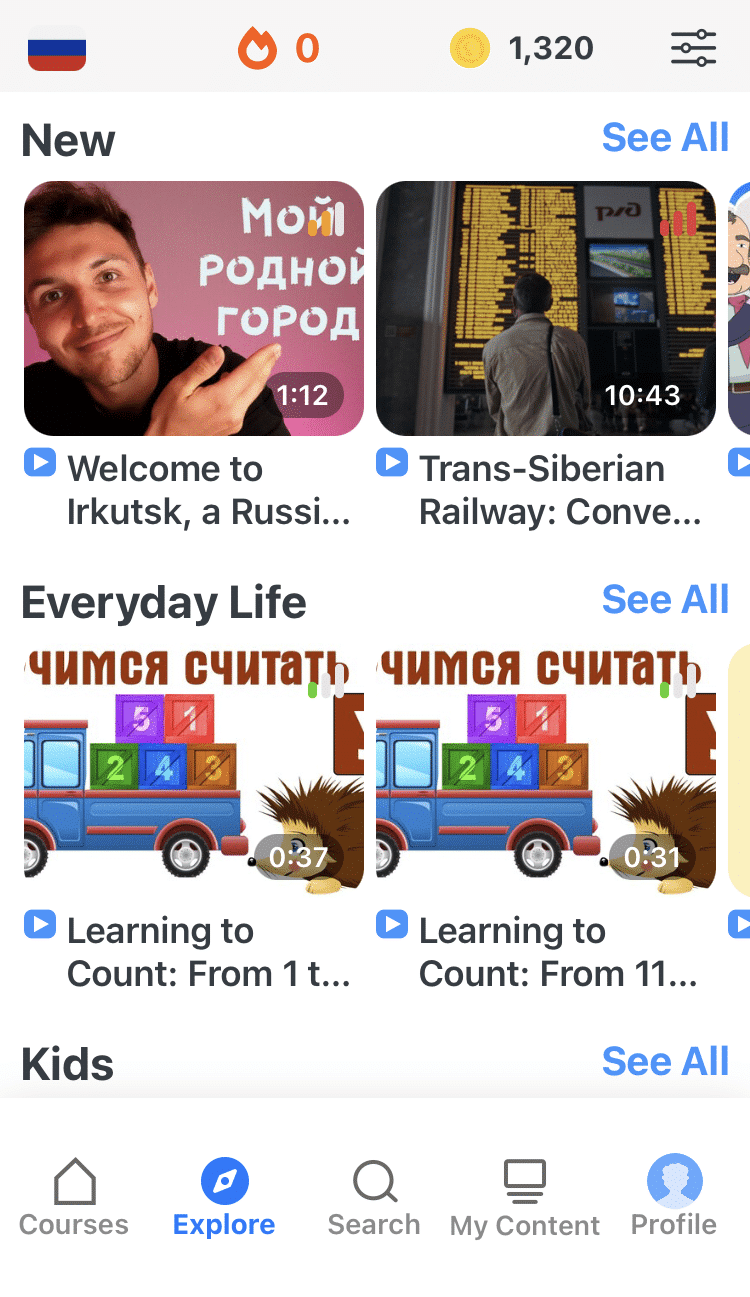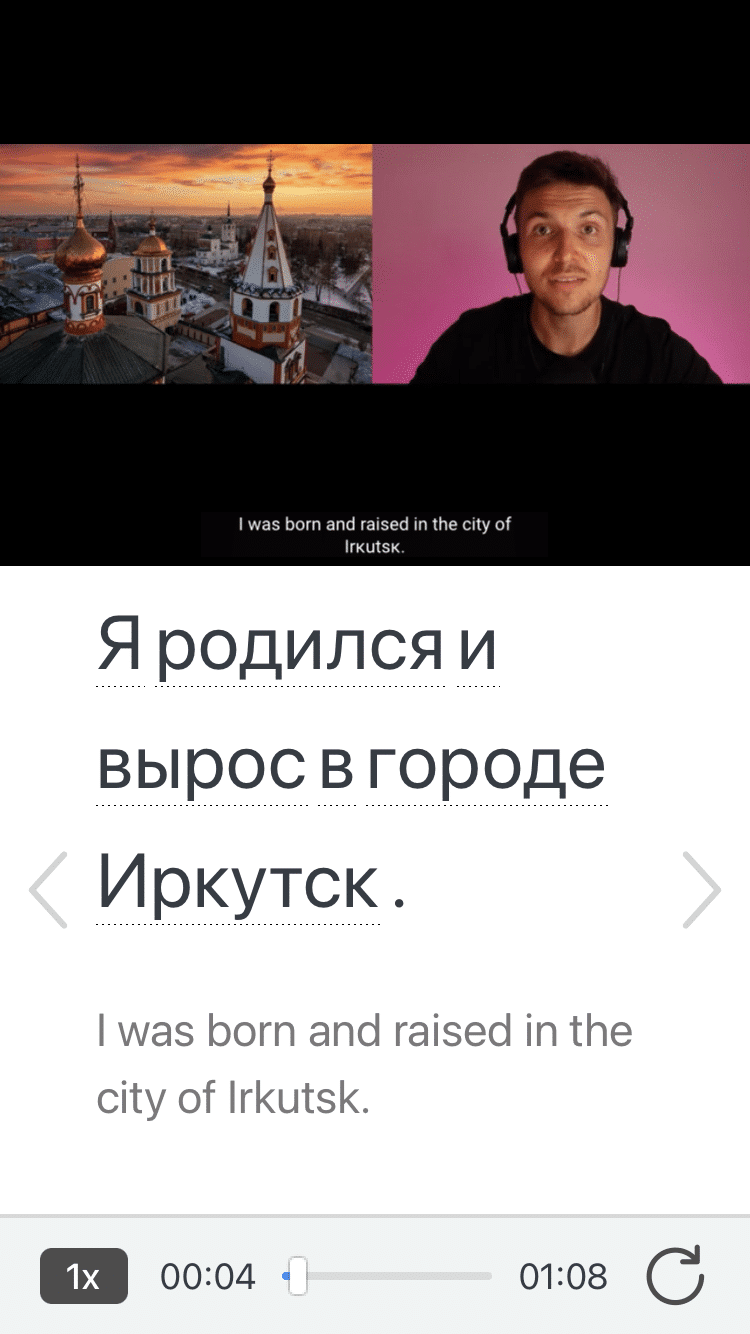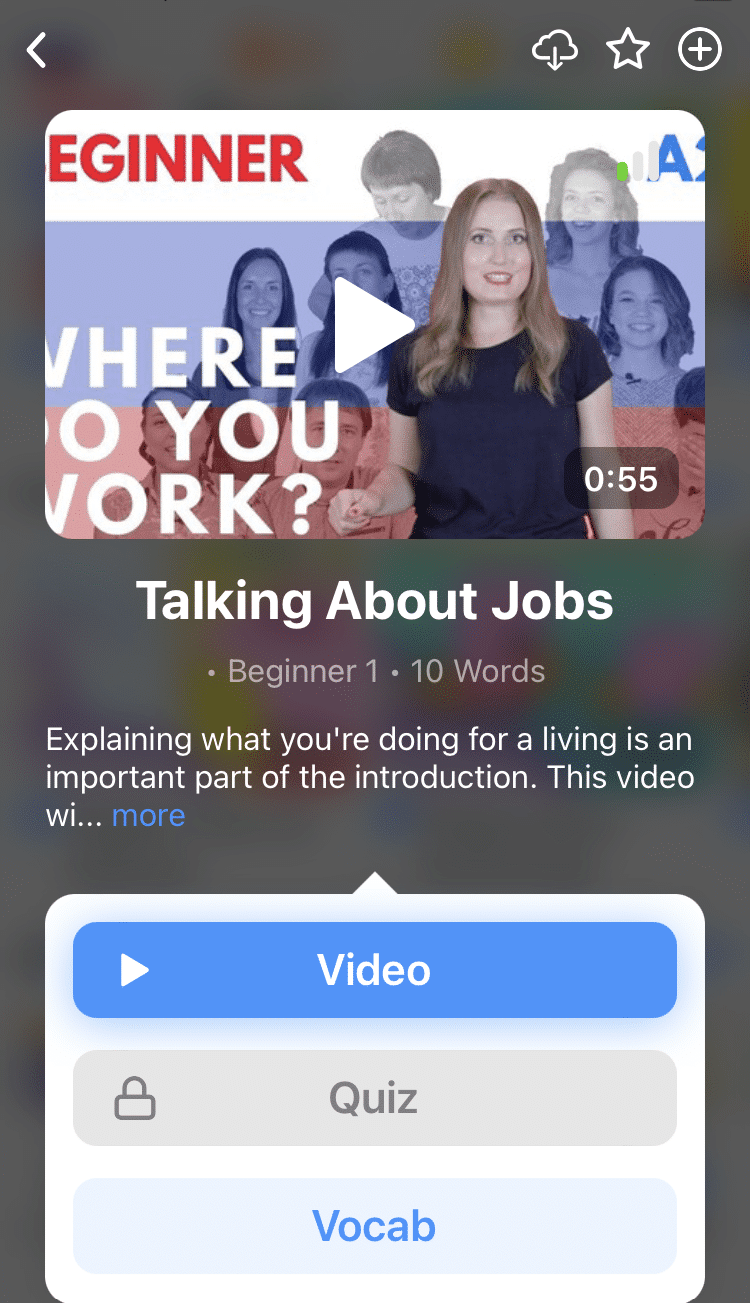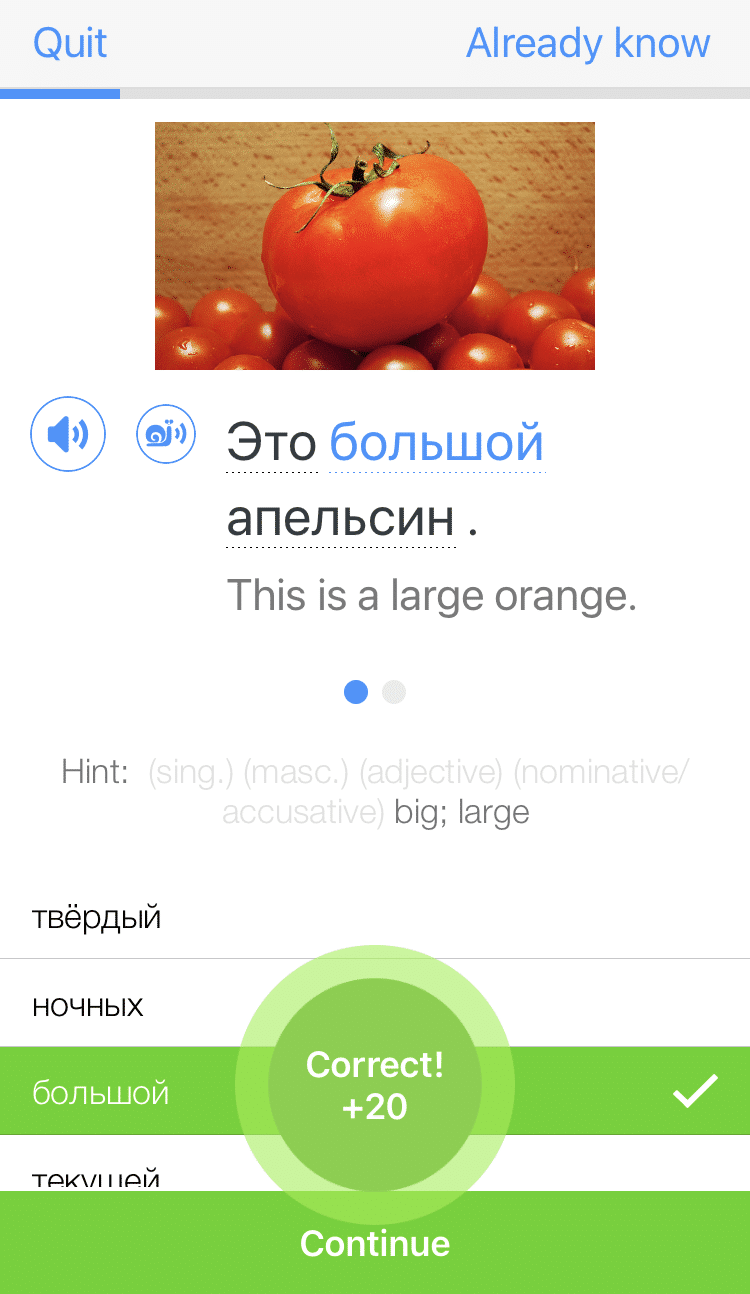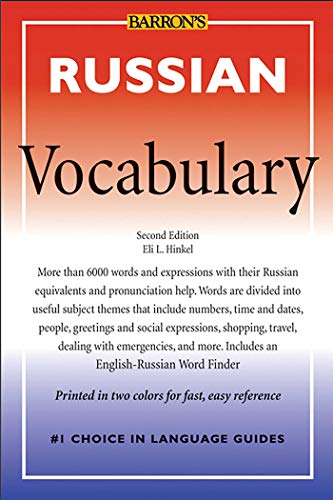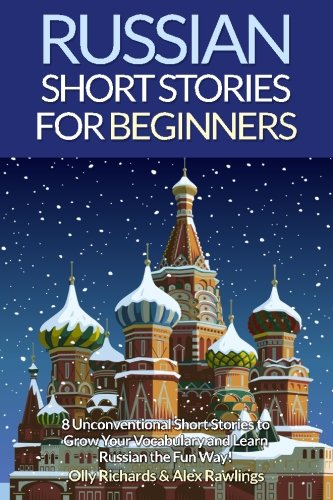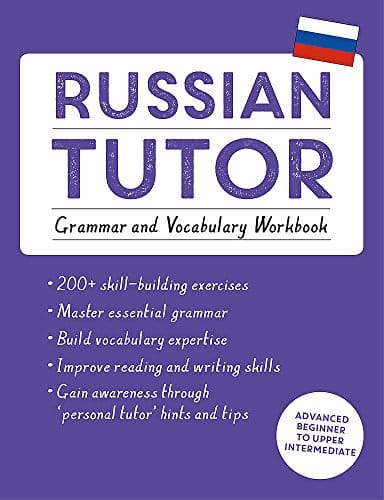
7 Russian Vocabulary Learning Tools
They say a picture is worth a thousand words.
But you can’t communicate with images alone! Words are clearly important for communicating, speaking and understanding others.
So if you want to learn Russian, you need to learn vocabulary.
In this post, we’re looking at the top resources that will help you do just that, one word at a time!
Contents
- How to Learn Russian Vocabulary Faster
- 7 Vocabulary-rich Russian Learning Resources
- And One More Thing...
Download: This blog post is available as a convenient and portable PDF that you can take anywhere. Click here to get a copy. (Download)
How to Learn Russian Vocabulary Faster
First, here are a few tips for learning Russian vocabulary as efficiently as possible.
Create a study guide
Create a study guide that includes a plan for what you are learning, and use it to stay on schedule. For example, beginner Russian students should focus on learning the Cyrillic alphabet first, then common Russian sounds, basic vocabulary words and grammar rules to piece those words together to form legitimate sentences.
The easiest way to create a study guide is to use a notebook or computer to plan individual lessons. You should focus on specific topics, like numbers, colors, food, directions, animals, etc., and pick out the resources you plan to use in advance. Then, you can check off each topic after you have completed it to stay on track.
Studying a language can get rather tedious and at times even boring, which is why it is important to choose engaging and context-rich resources for your lessons (more on this below).
It can also help to set up small rewards for yourself upon reaching goals—ice cream usually does the motivational trick!
Set goals and review
Aim to learn a certain number of new words each day to keep yourself on track, and also provide yourself with the ability to review what you have studied.
Reviewing can easily be done by creating flashcards with individual words and their definitions on the back to test yourself. However, you can keep things interesting by testing your knowledge with varied resources like workbooks, flashcards and tests so that you can be certain that you remember and understand what you have studied.
Choose your sources carefully
Carefully pick quality sources that are appropriate for your fluency level, and once you have mastered that level, keep challenging yourself.
Remember that anyone can post a video or create a site, but it does not mean that they are credible or will offer helpful material for learning Russian. When you pick sources, try to find ones with a lot of likes or reviews (for example, highly-watched YouTube videos), or ask for recommendations on social media.
Use sources that include authentic resources
Use music, movies, television shows and internet clips to hear Russian pronunciation spoken by natives.
After you have studied words or phrases for a specific topic, Google additional resources. For example, if you just learned words related to food, watch a Russian cooking show to help reinforce vocabulary you could use to shop in a grocery store or order in a restaurant.
7 Vocabulary-rich Russian Learning Resources
Russian Vocabulary Apps
FluentU
FluentU is an excellent tool for learning Russian vocabulary in context. You can choose from hundreds of video clips from authentic Russian media and use the program’s learning tools to build your vocabulary while you watch.
Each video comes with a downloadable transcript and interactive subtitles available in Russian and English. Just hover over a word or phrase in the subtitles to see its translation, part of speech and a corresponding image.
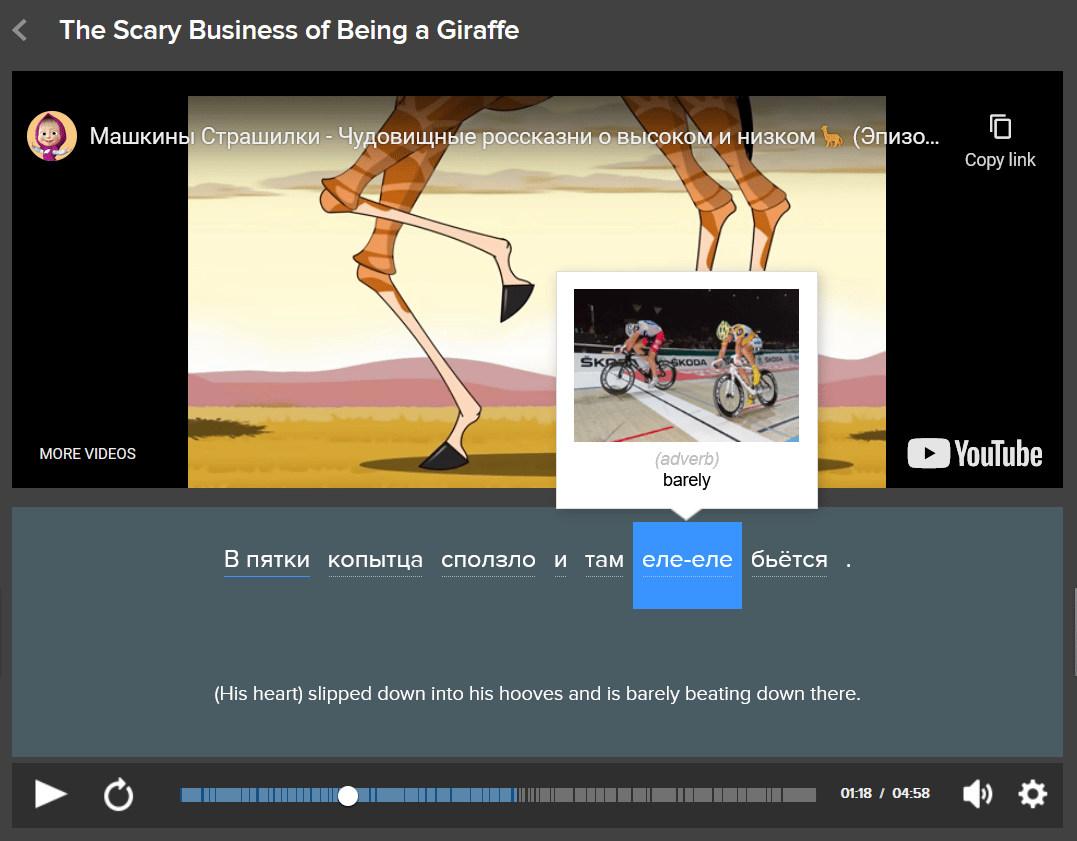
Click on the word to see example sentences, hear its audio pronunciation and find other videos where it’s used.
The program’s flashcard feature and personalized vocabulary quizzes after each video will ensure that you’re reviewing and remembering new words and phrases as you make your way through the library of entertaining videos, with new content added all the time.
You can download the FluentU app for iOS or Android devices and try it out for free.
Russian Vocabulary Books
Barron’s “Russian Vocabulary”
If you plan on visiting Russia soon, or just want to learn on the go, this pocket-size resource is perfect for looking up a handy word in a given situation. This book is easier to use than some others because the words are actually first written in English and then translated into Russian. This makes it easy to find a word quickly instead of having to flip through thousands of foreign words looking for the right one.
It contains 6,000 words divided by topic and alphabetized within each topic. Topics include measurements, moods, traveling, numbers, food, sports, phone etiquette, etc.
Each word has a pronunciation guide and is divided into two colors, which helps you quickly scan and find the word you need to express yourself.
“Russian Short Stories For Beginners: 8 Unconventional Short Stories to Grow Your Vocabulary and Learn Russian the Fun Way!”
This handy book takes a different approach to helping you learn Russian. Instead of simply listing words as most vocabulary resources do, it helps you learn the words in context by seeing them in short stories.
The stories are created for beginners and organized into chapters, so that they are easy to understand. The stories keep you intrigued, having fun and excited to learn.
The book covers different genres, such as history, crime, thriller and science fiction. The stories help you better comprehend Russian rules of grammar while also being introduced to conversational Russian.
Review what you read with summaries and test your understanding with questions to make sure you remember what you have learned.
“Russian Tutor: Grammar and Vocabulary Workbook”
This book is intended for advanced beginners to intermediate learners. The workbook has more than 200 different activities that help you build your vocabulary while also learning grammar and prioritizing useful topics.
After learning each topic, you can see it used in context and then test yourself by completing writing exercises. Images and infographics reinforce what you learn visually.
YouTube Videos
“Learn Russian Vocabulary – 125 Basic Russian Words – Russian Made Easy Vol. 1”
Russianpod101.com, which offers a lot more video and audio lessons along with great learning materials on their website, presents this one-hour video that teaches 125 of the most basic Russian words. The friendly host, Katyusha, allows you to hear words pronounced by a native Russian speaker.
Each word is pronounced in Russian, as well as written on the screen in Russian and English. Then, the word is used in phrases or sentences to provide the context in which it can be used.
This type of learning that utilizes multiple senses (visual and oral) helps you reinforce what you learn by seeing and hearing it.
“1000+ Common Russian Words with Pronunciation”
This YouTube video crams in over 1,000 Russian words in just under one hour. This is intended more for intermediate and advanced Russian students as it does not offer English translations within the video itself. Instead, you can hear the word pronounced in Russian, see it written in Russian and see an English phonetic pronunciation guide.
However, accessing English translations only requires changing the captions on YouTube from Russian to English.
“Learn Russian: Effortlessly Learn Russian Language Vocabulary 1-100 Words Audio 1”
This two-hour video, presented by Effortlessly Learn Foreign Language, offers 100 Russian words with their translations. Each word is said once in English, then repeated in Russian three times.
As there is no written content to be seen on the screen, it is the perfect resource to learn with while on the go—driving, exercising or running errands.
This channel has another vocabulary video as part of the series that teaches you how to pronounce Russian numbers.
Russian is not an easy language, but it can be mastered with dedication, practice and the will to learn.
Use a broad range of sources to learn spelling, pronunciation and usage rules, test your knowledge and improve your fluency levels in no time!
Download: This blog post is available as a convenient and portable PDF that you can take anywhere. Click here to get a copy. (Download)
If you love learning Russian and want to immerse yourself with authentic materials from Russia, then I should also tell you more about FluentU.
FluentU naturally and gradually eases you into learning the Russian language and culture. You'll learn real Russian as it's spoken by real Russian people!
FluentU has a very broad range of contemporary videos. Just a quick look will give you an idea of the variety of Russian-language content available on FluentU:
FluentU makes these native Russian videos approachable through interactive transcripts. Tap on any word to look it up instantly.
Access a complete interactive transcript of every video under the Dialogue tab. Easily review words and phrases with audio under Vocab.
All definitions have multiple examples, and they're written for Russian learners like you. Tap to add words you'd like to review to a vocab list.
And FluentU has a learn mode which turns every video into a language learning lesson. You can always swipe left or right to see more examples.
The best part? FluentU keeps track of your vocabulary, and gives you extra practice with difficult words. It'll even remind you when it’s time to review what you’ve learned. You'll have a 100% personalized experience.
Start using the FluentU website on your computer or tablet or, better yet, download the FluentU app from the iTunes or Google Play store. Click here to take advantage of our current sale! (Expires at the end of this month.)
And One More Thing...
